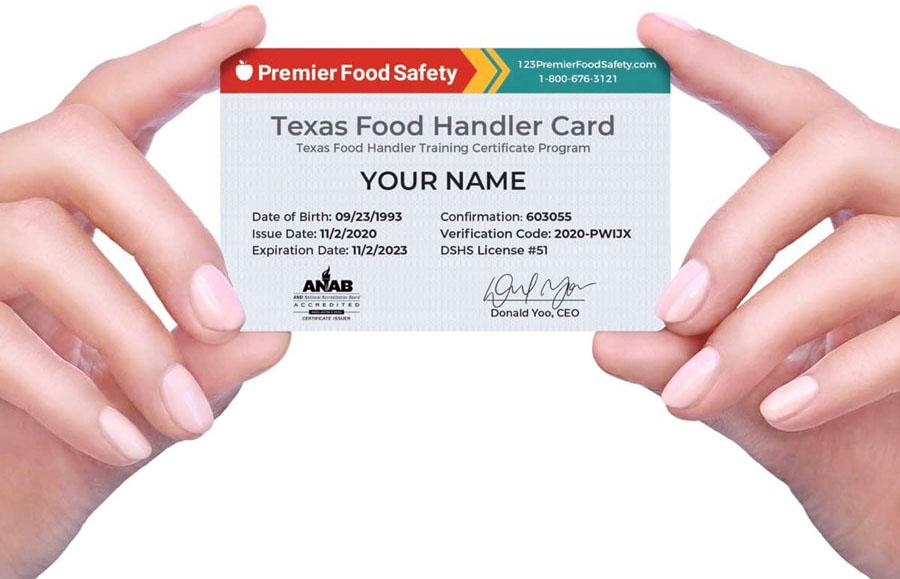Table of Contents
- Understanding the Basics of a Texas Food Handlers License
- Who Needs a Food Handlers License in Texas
- Step-by-Step Guide to Obtaining Your Food Handlers License in Texas
- Common Mistakes to Avoid When Getting Your Texas Food Handlers License
- Renewing Your Food Handlers License in Texas: What You Need to Know
- Q&A
- Insights and Conclusions


Understanding the Basics of a Texas Food Handlers License
Grasping the essentials of a food handlers license can be the gateway to ensuring food safety and compliance in Texas. This certification is crucial for anyone involved in the preparation, storage, or service of food within the state. It signifies not only a basic understanding of food handling protocols but also a commitment to maintaining public health. Texas mandates that food handlers complete a training program from any Texas Department of State Health Services approved source, ensuring they are up-to-date with the current standards and practices.
- Training Duration: Typically 2 to 4 hours
- Topics Covered:
- Proper handwashing techniques
- Temperature control and cross-contamination prevention
- Hygienic food preparation and storage
- Certification Validity: 2 years after completion
| Aspect | Details |
|---|---|
| Fees | $7 - $15 |
| Online Availability | Yes, with immediate certification |
| Recognized By | State of Texas |
To get started, prospective food handlers should select a training course that fits their schedule and learning preferences, many of which are conveniently available online. Awareness and understanding of safe food handling techniques have significant impacts beyond compliance; they are fundamental to preventing foodborne illnesses. Pursuing this knowledge not only fortifies individual skill sets but also reinforces a collective effort towards sustainable public health standards.


Who Needs a Food Handlers License in Texas
In Texas, a food handlers license is a crucial requirement for individuals engaged in the preparation, serving, or handling of food within any establishment where food is offered to the public. This includes, but is not limited to, employees working in restaurants, cafes, catering companies, and food trucks. Moreover, it’s essential for workers involved in food processing or packaging operations. The primary goal is to ensure that employees are knowledgeable about safe food handling practices, reducing the risk of foodborne illnesses.
Who might be exempt from needing this license? Interestingly, there are exceptions, including individuals working in temporary food events lasting fewer than three days or those handling only pre-packaged, non-potentially hazardous foods. Additionally, volunteers participating in charitable feeding programs might not need formal certification, though it’s recommended for ensuring public health safety.
| Position | Requires License? |
|---|---|
| Chef | Yes |
| Food Event Volunteer | No (Exceptions Apply) |
| Waitstaff | Yes |
| Packaged Snack Vendor | No |
What associations and governmental entities are involved? Compliance is typically overseen by local health departments and the Texas Department of State Health Services. These bodies ensure that training programs are up-to-date and that food establishments adhere to safety regulations. By mandating food handlers to undergo training programs approved by these associations, Texas ensures a higher standard of public health protection, making it a key prerequisite for anyone wishing to work in the food industry within the state.


Step-by-Step Guide to Obtaining Your Food Handlers License in Texas
Starting your journey to get certified in Texas begins with finding a state-approved food safety training program. Research and select a course provider that meets your educational style and schedule preferences. Many courses are available online and can be completed at your own pace. These courses cover essential topics such as foodborne illnesses, cleanliness, and safe food handling practices. Once you find a suitable course, you can enroll and proceed with the learning material. It’s important to choose a class that is accepted throughout Texas, ensuring your certificate is valid across the state.
After completing the educational portion, you’ll need to take and pass the exam. This assessment tests your understanding of the material and your ability to apply it in real-world scenarios. Exam tips include:
- Familiarize yourself with common food safety terminologies and procedures.
- Engage with practical scenarios to better understand theoretical concepts.
- Practice sample test questions to build confidence and improve timing.
Upon passing the examination, you’ll receive your official food handlers certificate. Maintaining this certification requires awareness of renewal requirements. Here’s a quick look at the essentials for keeping certification current:
| Requirement | Renewal Frequency |
|---|---|
| Renewal Period | Every 2 Years |
| Refresher Course | Optional, but recommended |
By staying informed and proactive, you’ll ensure continuous compliance with Texas health regulations.


Common Mistakes to Avoid When Getting Your Texas Food Handlers License
clothing requirementsAdhering to these guidelines will fortify your understanding and readiness, ensuring you are well-equipped to not only pass the test but also uphold the highest standards of food handling in your professional environment.


Renewing Your Food Handlers License in Texas: What You Need to Know
certification. Know the fees involved and plan accordingly to avoid any disruptions in your work. To formalize the renewal, ensure you submit your new certificate to your employer for documentation. For those unfamiliar with completing a food handler course online or in-person, here is a brief comparison to help decide the best learning style for you:| Aspect | Online Course | In-Person Course |
|---|---|---|
| Flexibility | Complete at your own pace | Fixed schedule |
| Cost | Varies, often less expensive | May include additional materials |
| Interaction | Online forums or emails | Face-to-face discussions |
| Accessibility | Accessible anywhere with internet | Requires travel |
Renewing your food handlers license efficiently not only keeps you compliant but also demonstrates a commitment to safety and professionalism in your culinary career. Navigate the renewal process with confidence by planning ahead, selecting the right educational option, and keeping your documentation up to date.




0 Comments